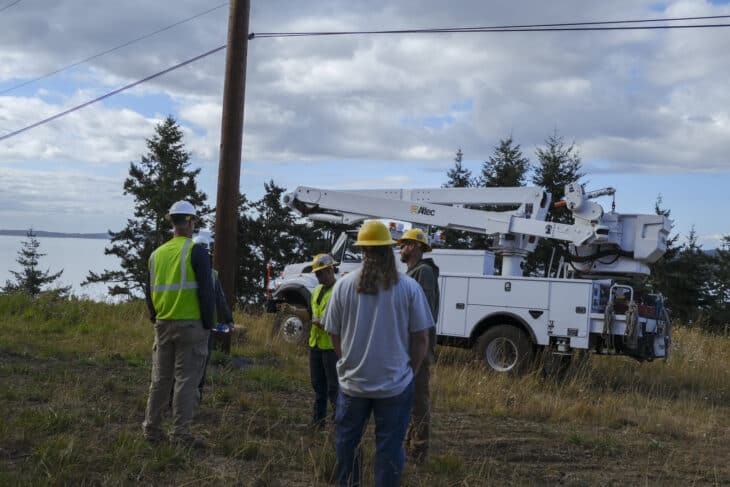Recap of Power Outage on 4/26/19
At ~8:45pm, the power went out on Orcas, Decatur, Blakely and Shaw. OPALCO’s outage team, in concert with BPA, determined there was a fault on BPA’s high-voltage (69kV) system on Decatur that feeds these areas.
The outage team quickly designed a plan to switch all power away from the faulted lines to a redundant 115kV BPA cable. Crews were in the field at the BPA substation on Lopez and in multiple locations on Orcas to operate switches for a smooth transition to the redundant feed.
At ~ 11:00 pm, the Outage Team began restoring power in phases in an effort to protect the system from overload. By 12-midnight, all but Decatur was back up with power. Once switching was complete, and in communication with BPA, a crew from Lopez took a work boat to Decatur to finalize the restoration at ~12:59am. While on Decatur, OPALCO crews patrolled the BPA lines in an attempt to identify a culprit.
Crews returned this morning to confirm in daylight, a tree outside of the right of way had fallen on the overhead lines. The Outage Team communicated their findings to BPA so that they can begin restoration of the 69kV line to Decatur and Lopez. Operations will work to restore the system to its normal configuration over the next few days.
Here’s a short video that explains the process our lineworkers go through to restore power: https://youtu.be/PPqYFzVD1FM



